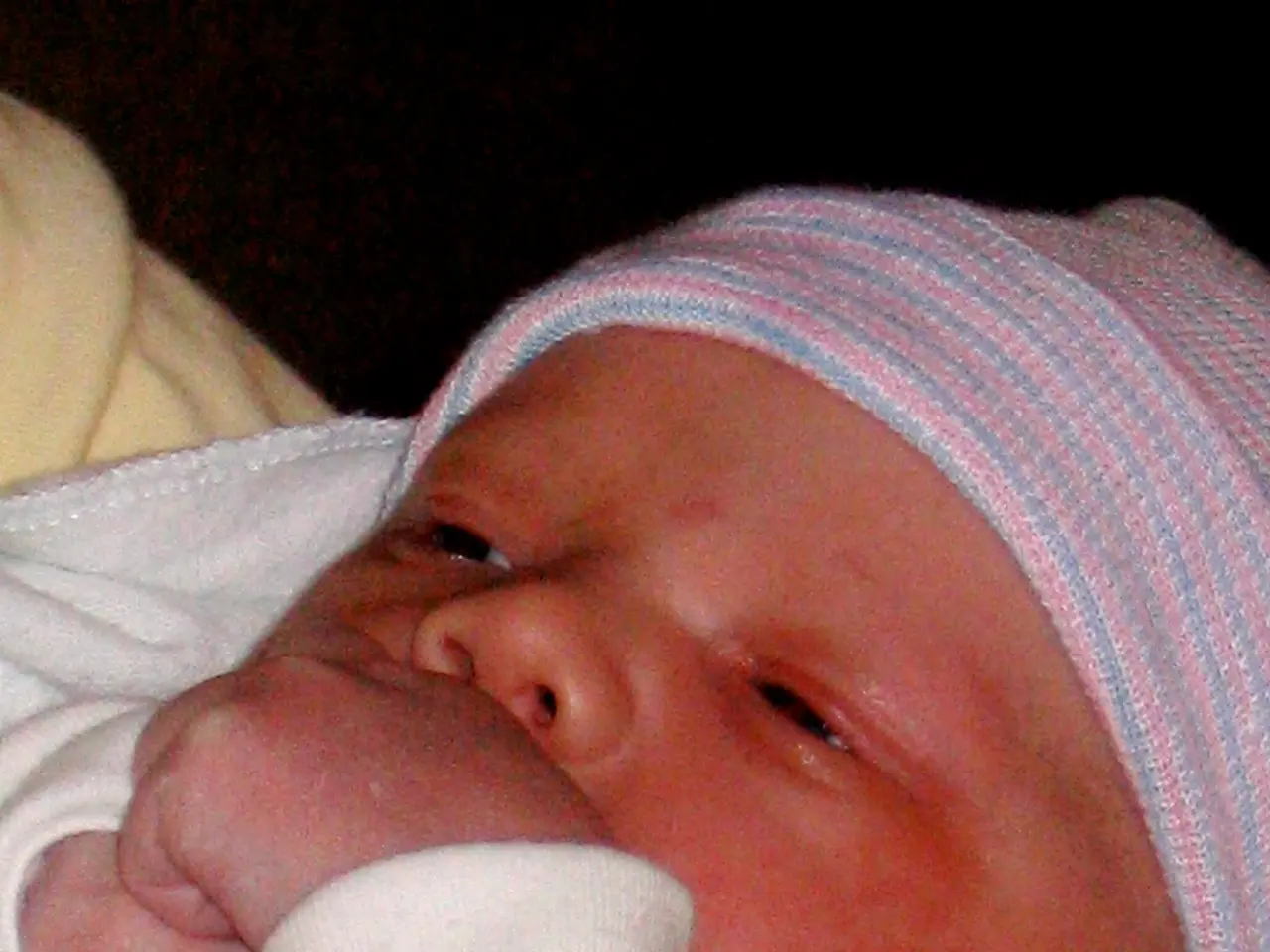Infant Ear Infections: Causes, Signs, and Remedies
In the world of pediatrics, ear infections, also known as otitis media (OM), are a common ailment, particularly affecting young children. These infections are often caused by viral or bacterial infections that follow upper respiratory illnesses, leading to fluid retention in the middle ear [1][3].
Symptoms of an ear infection in babies can be quite distressing for parents. Common signs include tugging or pulling at the ears, irritability, excessive crying, feeding difficulties, fever, ear discharge, hearing problems, and loss of balance [1][3]. In some cases, babies may show no obvious symptoms, and the infection might be discovered during a routine checkup [1].
When it comes to treatment, a conservative approach is often favoured as many ear infections resolve on their own, especially viral cases [2][3]. Pain relief and adequate rest are crucial for symptom management. However, when bacterial infection is suspected or symptoms are severe or persistent, antibiotics may be prescribed [2].
For recurrent or chronic ear infections, insertion of pressure-equalizing tubes (ear tubes) by an ENT specialist may be recommended to allow fluid drainage and prevent further infections [2]. It's important to note that antibiotics are not always necessary for treating ear infections in children, and a wait-and-watch approach is preferred by some doctors. However, if antibiotics are used, there is a risk of the bacteria becoming resistant to the drug, leading to repeated infections that could potentially cause a loss of hearing in the baby [3].
Preventive measures can help reduce the risk of ear infections. For instance, preventing allergies can help, especially those affecting the respiratory system. Staying up-to-date on vaccinations is also crucial, as they can help prevent ear infections. Moreover, avoiding smoking around a baby can help reduce their susceptibility to ear infections [2].
When a baby has a cold, allergies, or a sinus infection, the Eustachian tube is often blocked, allowing bacteria to thrive when fluid builds up behind the eardrum [1][3]. Interestingly, usage of a pacifier can increase the occurrence of otitis media in a baby by 33% [4], while elevating a baby's head while bottle-feeding can help prevent fluid from flowing back into the Eustachian tube [1].
Breastfeeding for the first six months of a baby's life can also provide significant benefits. Not only does it help boost the baby's immune system, but it can also help prevent ear infections [4].
Keeping the number of children in a daycare centre small can help prevent the spread of contagious illnesses, reducing the risk of ear infections [5].
This comprehensive overview is based on recent pediatric ENT and child health sources from 2025 [1][2][3][4][5]. It's always best to consult a healthcare professional for advice tailored to your specific situation.
Parents may find solace in understanding that some ear infections in babies can be prevented through measures such as avoiding cigarette smoke and maintaining a small number of children in daycare, both of which reduce the risk of contagious illnesses. Additionally, advancements in science and health-and-wellness, including stays up-to-date on vaccinations, can help prevent ear infections by strengthening the baby's immune system and reducing allergy issues that may contribute to the condition.




